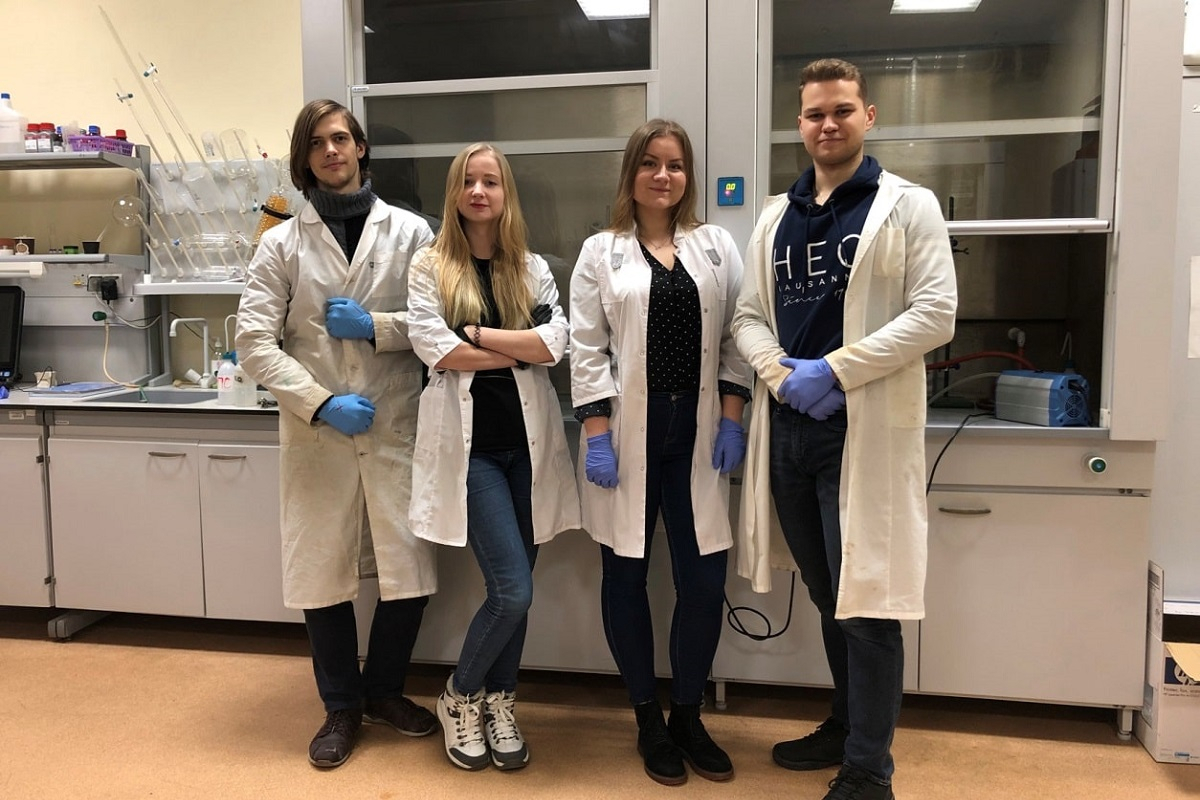Students of St Petersburg University develop a method of safe tracking of medication in the body

Biotrek Team, the bronze medallist of the student contest ’Start-up SPBU - 2019’ is currently working on developing a method that will allow to track the movement of medication in the human body without damage to the health. The main idea of the project is to replace an ingredient of many modern medications Protium with its non-radioactive isotope Deuterium. This will allow to avoid adding heavy metals and iodine-containing organic substances to medications.
One of the pressing problems of modern pharmacology is the necessity to add to medicine heavy metals that can often be radioactive, as well as iodine-containing organic substances. Those are necessary during clinical trials and when prescribing medication for monitoring the movement of medication through the body, distribution of drugs to targeted organs or tissues, and analysing risks of accumulation of a drug in the body. To control these processes X-ray examination is needed. X-ray detects such metals and substances, and makes it visible how they move in the body. However, excessive X-radiation can cause cancer cells growth, whereas heavy metals can be toxic and iodine-containing substances can send allergy-prone patients into anaphylactic shock.
Without the abovementioned clinical trials, it is impossible to put a drug on the market. Since heavy metals are necessary for testing, medications appear on the shelves of the drugstores inevitably containing such an ingredient. Of course, some medications are based on the properties of heavy metals. However, if heavy metals do not have therapeutic purposes, it is important to stop using them. Students suggest solving the problem by replacing Protium with its non-radioactive isotope Deuterium. In this case it will be possible to monitor the movement of a drug through the body of a patient by magnetic resonance imaging (MRI), which means that in the future it might be possible to discard X-ray and radioactive substances in drugs.
The idea of our project is to detect and monitor medications in a human body with the help of magnetic resonance imaging.
Vladislav Liamin, Captain of the Team, student of the bachelor’s programme ‘Chemistry’
‘Our method involves using Deuterium. It can be added to the composition of a drug without affecting its biological or chemical properties. Only physical properties undergo changes, which facilitates detection of the medication in the body by means of MRI scanners. MRI scanners set contrast agents apart from any other substance, then the computer processes the picture and highlights contrast agents,’ Vladislav Liamin explained.
This method can not only raise the level of safety of medications, but also facilitate drug testing that usually takes years to complete.
Our method can speed up clinical testing twice: more information about the spreading of a drug in the body will be collected faster. Our method will help to observe in real time how a medication is moving through the body.”
Vladislav Liamin, Captain of the Team, student of the bachelor’s programme ‘Chemistry’
The idea which is being developed by the students is not new: there are MRI scanners that use Deuterium; research has been carried out concerning detecting Deuterium with the help of MRI. ‘Other researchers try to apply this approach to drugs. However, this area of research is just developing now. This is a very promising area, and we do hope to succeed,’ Vladislav Liamin adds.
At this point of the research, the students have already worked out a procedure of injection of Deuterium into molecules of bioactive compounds and synthesised deuterated substrates. Also, the Team studied the method on Deuterium detecting MRI scanner. The students are planning to commercialise their development and to introduce it into the system of research of new drugs.
Apart from the captain Vladislav Liamin, the Team consists of a student of bachelor’s programme ‘Chemistry’ Anastasiia Petrova, a student of bachelor’s programme ‘Law’ Kristina Oglina, and a students of master’s programme ‘Economics’ Anton Ivanov. The research supervisor of the project is Artem Seliutin, an associate professor in the Department of General and Inorganic Chemistry.

